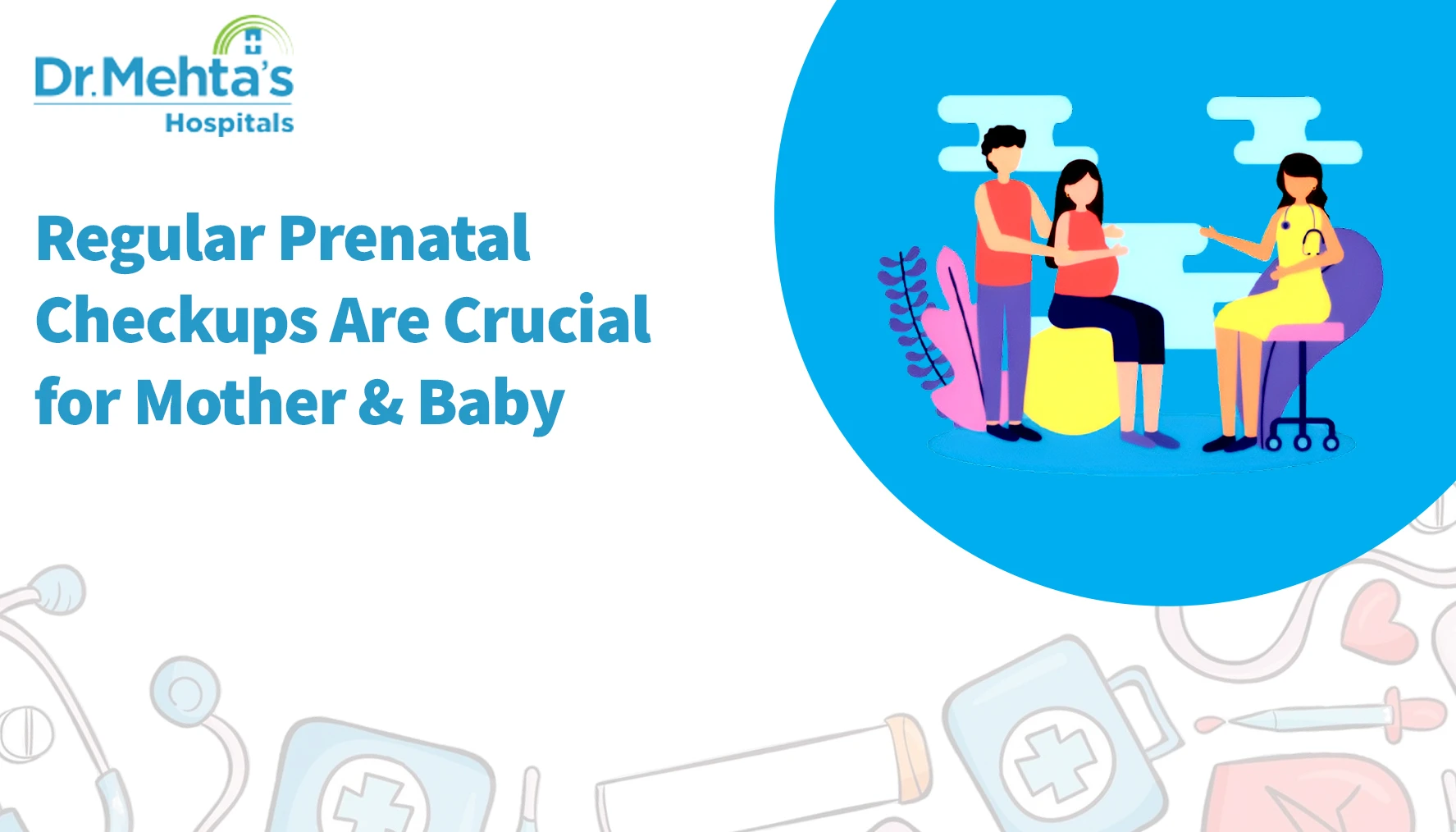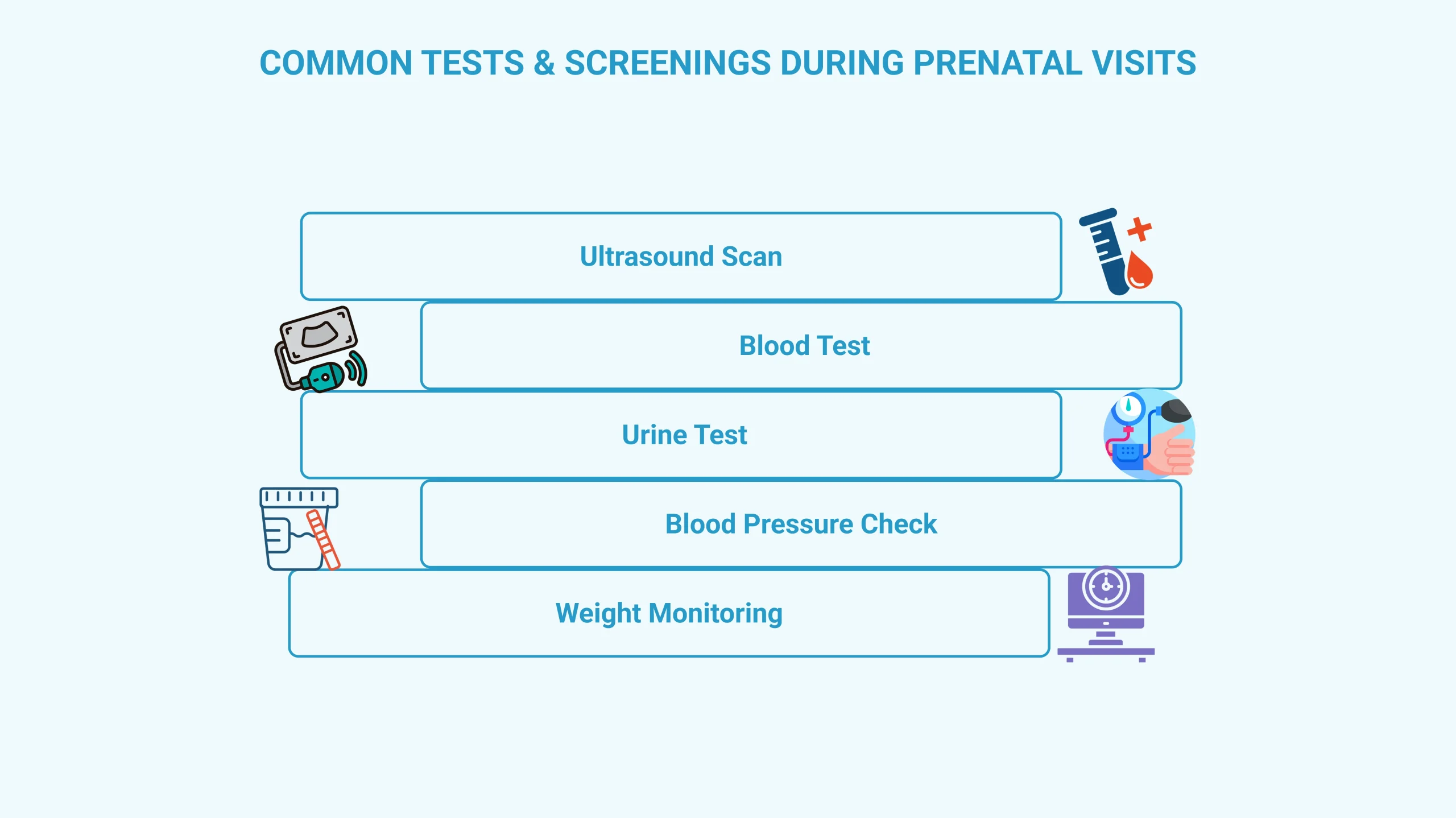Table of Contents

One of the most important phases in a woman’s life is preparing for a healthy pregnancy. Besides emotional care and family support, prenatal care plays a vital role in ensuring the safety of both the mother and the baby. Prenatal checkups are more than routine visits, they are a preventive approach to maintaining health, avoiding complications, and providing support through every stage of pregnancy.
Our team of caring obstetricians and gynecologists at Dr. Mehta Hospitals, Chennai offers evidence-based and customized prenatal and postnatal care to ensure mothers feel confident, comfortable, and healthy.
The term prenatal care refers to a series of medical examinations, tests, and counselling that expectant mothers undergo during pregnancy. These visits help monitor the health of both mother and baby and identify any potential threats early.
It usually includes:
Missing checkups can put both mother and baby at risk. The importance of prenatal care lies in its ability to:
Research shows that early prenatal checkups minimize the risk associated with pregnancy, improve birth outcomes, and provide emotional support and reassurance to families.
Prenatal visits are not just medical appointments, they also provide comfort, reassurance, and emotional support while ensuring the baby is developing well. These visits enable healthcare providers to track the progress, address issues promptly, and support overall well-being.
In India, some women are unable to attend regular prenatal (antenatal) checkups, often due to barriers like distance, lack of awareness, or social challenges. Studies indicate that approximately 6-7 percent of pregnant women did not attend any check-up. So,is prenatal care necessary? Absolutely. While some mothers may feel fine, skipping prenatal care can lead to:
Undiagnosed conditions such as gestational diabetes or preeclampsia.
Regular prenatal visits protect both mother and baby by detecting and managing potential problems early.

| Test Name | Purpose |
| Ultrasound Scan | Checks baby’s growth, position, and overall health |
| Blood Test | Detects anaemia, infections, and blood type |
| Urine Test | Screens for gestational diabetes or kidney issues |
| Blood Pressure Check | Identifies risks of preeclampsia |
| Weight Monitoring | Ensures healthy pregnancy weight gain |
These tests are part of a structured and routine prenatal care schedule designed to ensure a safe and healthy pregnancy.
Pregnancy is a period of joy and anticipation. With the right care and support, mothers can experience it confidently. As the best gynecology hospital in Chennai, Dr. Mehta’s Hospitals provides holistic prenatal and postnatal care.
Expectant mothers can consult our experienced doctors, including Dr. Usha Rani, Dr. Premalatha R, recognized for her expertise in Obstetrics & Gynecology; Dr. Latha Jawahar, a highly respected gynecology specialist and Madras University topper in DGO; and Dr. Nandita A. Thakkar, known for her personalized pregnancy care.
We walk beside you, from the first trimester to the final weeks, to make your journey safe, reassuring, and positive.
Prenatal care includes medical and emotional support throughout pregnancy. It helps protect both mother and baby, preventing complications and ensuring a safe delivery.
Ideally, prenatal care should begin within the first 8 weeks after confirming pregnancy.
Regular checkups, a balanced diet, prenatal vitamins (like folic acid), and lifestyle guidance are essential for a healthy pregnancy.
Regular visits, screenings, nutrition, counselling, education, and emotional suppor
Yes. Regular prenatal checkups reduce the risk of premature birth, low birth weight, and delivery complications.
No. Prenatal care is personalized based on the mother’s age, medical history, and pregnancy condition.
Table of Contents
Recent Post
About us
Dr. Mehta’s Hospitals is a leading multispecialty hospital in Chennai with over 90 years of excellence. With 400+ beds and 80+ specialties, its Chetpet and Velappanchavadi centers offer advanced, state-of-the-art, compassionate care under one roof.
Chetpet Contact Details
Velappanchavadi Contact Details
Feel free to ask your queries on
Our Specialities
About us
Dr. Mehta’s Hospitals is a leading multispecialty hospital in Chennai with over 90 years of excellence. With 400+ beds and 80+ specialties, its Chetpet and Velappanchavadi centers offer advanced, state-of-the-art, compassionate care under one roof.
Chetpet Contact Details
Velappanchavadi Contact Details
Feel free to ask your queries on
Our Specialities
Quick Links
Center Of Excellence